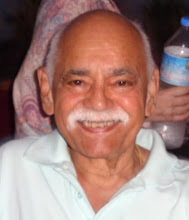Television is once again hot stuff. Two media barons are fighting a very public war for dominance of the airwaves.
Richard Branson, the people’s champion, is contesting big, bad Rupert Murdoch’s right to a swingeing increase in costs for Virgin Media, a cable operator, to carry Sky TV programmes. Sky apparently want a 75% increase and Virgin are allegedly prepared to pay 30% more. The result, an impasse, and Virgin now do not offer popular programmes like 'The Simpsons'.
Sky will lose up to £60 million a year income which it stood to earn from Virgin who now have a diminished portfolio of channels and programmes to offer its customer base. Both have taken their case to the public via press and television advertising.
Virgin, playing little David, complains of bullying, and Goliath in the form of young James Murdoch offers Virgin customers an opportunity to switch.
In reality the battle is much more than a negotiation hurdle. It is about control of the biggest commercial broadcaster in the country. ITV is the real prize. Branson wanted a stake in ITV but a surprise move by Sky resulted in them owning 17.9% of ITV. Mr Murdoch is now the biggest media owner in Britain with significant interests in newspapers in the form of the Times/Sunday Times and at the Sun/News of the World. His ownership of Fox in the States provides programme material and he also has rights to broadcast a number of key sporting events in the UK. So could it be a battle fought at Mr Murdoch’s convenience?
In the past his opponents have been complacent and underestimated the skill and energy this Australian outsider brought to the battlefield. Richard Branson will not make this mistake. His longer term objective now must be to acquire Channel 5 and invest in programme production and in the acquisition of broadcasting rights for sporting programmes, all of which will be very expensive.
The interesting thing is the money that funds Sky and Virgin Media as apart from the terrestrial broadcasters like ITV comes from different sources. Sky and Virgin get 90% of their income from customer subscription whilst ITV get almost all their income from advertisers. The advent of Freeview, set top boxes, satellite transmissions and cable delivery mean that viewers have more choice than ever before. The result is smaller audiences per channel. ITV has suffered particularly.
Despite what they think, ITV is not a strong brand. Popular programmes are the strong brands and these are increasingly being showcased on a variety of channels. If ITV is to regain some of its lost ground, it has to go back to its strong programming heritage. Michael Grade knows this. He may carp about the government’s lack of support and be rightly apprehensive of Mr Murdoch’s ambitions, but he knows that the glory days of monopoly and captive audiences have gone forever. Survival will depend on a strong franchise of popular programmes created by his own team of producers.
Like the Chinese curse: these are interesting times for the companies involved. However, when the dust has settled and digital television sets are in every home, will the prize be worth the effort?
Friday, 9 March 2007
Subscribe to:
Comments (Atom)
